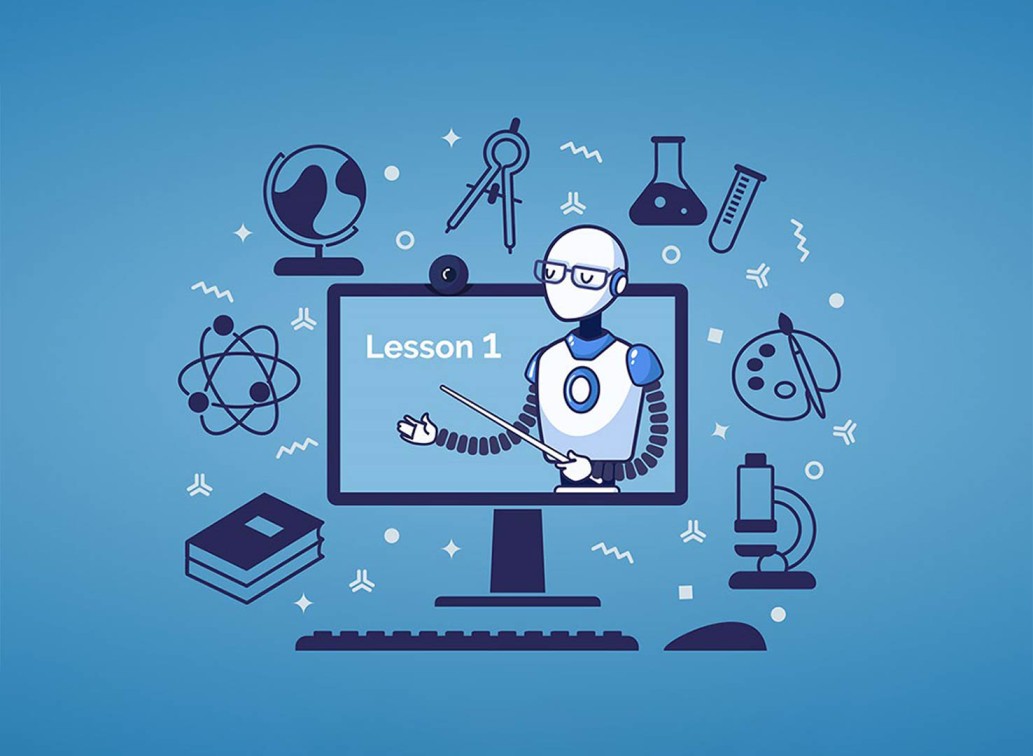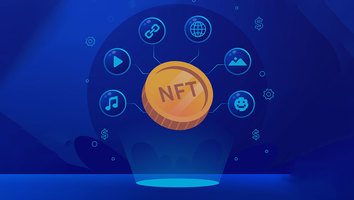Artificial Intelligence is the latest buzz in the world of technology and it is not just limited to robots. This technology is highly advanced and is being used in different sectors. It has been noticed that AI is changing the future of the education industry to a great extent, transforming traditional teaching methods into a more comprehensive way of learning by utilizing simulation tools and augmented reality.
There are speculations that AI will soon take over teachers. Well! AI will surely be a tool in the teacher’s kit, as this technology will help to lessen their paperwork burden while helping students to know and grow more to meet the requirement of this competitive world. Study materials can be customized by the teachers and the use of online lectures/video conferencing tends to be supportive. This technology is not only helpful to teachers but also to school administration, as it helps in quick admissions and grading which saves a lot of time.
Rule Based and Machine Learning Based AI
To understand the role of this advanced technology in the education sector it can be divided into two major types- rule-based and machine learning-based AI. In the case of rule-based decision-making, a rule is used to find solutions and recommendations. On the other hand, machine learning AI is more advanced, as it can learn and revamp over time with the engagement of large, multilayered datasets.
Statistics of AI in the Education Sector
A report from the AI market in the US Education Sector expected that this technology will grow at a high rate during the year 2017-2021 in the education sector by 47.5%. The digital education market/eLearning market surpassed 243 billion USD by the end of 2022, due to AI. A survey by Markets and Markets also predicted that the global AI market size in the education sector will reach approximately $3.68 billion by the end of 2023, while Market Search Engine predicted its worth to be $5.80 billion by the end of 2025. The predictions further say that the AI education market shall cross 20 billion USD by the year 2027.
AI is putting away the traditional methods of learning, and this is the reason why more than 50% of schools and universities are relying on this technology for all kinds of administrative work and quality education.
How AI is influencing the Education Industry
AI is being used as a powerful tool in the education sector and therefore businesses are investing billions of dollars in different AI applications while education app development is on priority. This technology is completely transforming the education sector, helping teachers, students, schools, universities, and other educational institutions.
Importance is now being given to AI schools and classrooms, the reason being the benefits of AI in the education sector.
Some of the applications of AI that are worth tracing in the education sector include:
Virtual learning- Students enjoy the experience of enhanced learning with the help of AI systems, as they can attend classes while being anywhere. Students need not attend the classes physically, as this platform digitalizes the textbooks while giving students access to different devices.
Overcomes language barriers- Language is always a barrier for students and AI has been successful in translating the learning materials into different languages. This makes learning easy for students across the globe. Students of different ages/grades can learn easily and achieve results.
Automated task- Apart from providing a tailored teaching process the AI software systems are also capable of grading tests, preparing exams, checking homework, making presentations, maintaining reports, and doing other administrative work. Integrated AI technology is used for automating day-to-day work/activities to make learning more productive.
Upskilling students- Artificial Intelligence and Machine Learning-driven software and application development solutions are capable of delivering better and more affordable opportunities for students to upskill. This technology is helping to close the skills gap and is not limited to students; it also focuses on businesses. Deep learning and ML affect learning and development by analyzing the skills of people and how they acquire the skills. Once the system understands the studying and learning procedure of humans it is automated.
AI in exams- Supervising an examination can be a tedious job for a teacher. The AI software systems can easily handle this for which it is actively used in examinations and interviews. Track of individuals is kept by AI programs through microphones, web browsers, web cameras, and keystroke analysis, which alert the system to any movement. This technology has been successful in conducting online examinations.
One-to-one learning- Every child is different in their learning abilities, and the conventional learning system lacks the concept of customized/personalized learning. AI plays an important role here to help every child personally and make learning easy for all.
Data-based feedback- To make the teaching-learning experience successful, feedback is really important that too from a reliable source. AI continuously analyzes work reports based on daily data which helps in student satisfaction. Also, this removes biases from learning while helping students to learn better.
Secured learning system- There are always issues of data protection in the education sector, and AI-based decentralized solutions are a perfect fit, as they provide teachers and students with secure data and information solutions. AI and Blockchain technology helps ensure data encryption and transparency by leveraging both their security and distributed ledger capabilities.
24*7 assistance- AI-based chatbots are used to inform and provide assistance. This supports customized learning that is beneficial for business professionals as well as teachers to engage learners. In the case of distance learning and other training courses, the chatbots can solve all kinds of queries while providing quick solutions and assistance 24/7.
Better adaptability in access- AI can make information available for learners across the globe while supporting multilingual teaching-learning, as it can translate into different languages. Learners with hearing or visual disabilities can also learn via AI technology and this is how this technology is providing more adaptable access to learners.
Better and smart content creation– AI is capable of creating innovative content that makes the teaching-learning process easy. Personalized smart study material is provided to the learners by breaking down the textbook to make it easy for the learners to understand the basic concepts. Smart content means comprehensive content after summarization of key points while creating audio, visualization, and digital lesson generation while updating content frequently.
How AI is helping Teachers?
Artificial Intelligence is helping teachers to fill the gap between the teaching and learning process. According to a survey by Ofsted in 2019, it was noticed that teachers spend less time planning lessons and even less time on actual teaching. Teachers get more time to understand and adapt via means of AI, as it provides a better teaching experience which is beneficial for teachers as well as students.
How AI is helping Students?
Better and individualized learning is offered by AI to students of all levels from pre-school to graduation level. Customized programs are available in form of software, quiz, games, and other platforms to make learning easier for learners. AI is also helping students to overcome geographical barriers, as they can learn anytime irrespective of their location. AI provides better engagement for students while allowing them to access learning 24*7. To meet the requirements of each student, AI provides tailored lesson plans to encourage smart, quick, and innovative learning among both normal students and those with special needs. To meet the requirements of each student, AI provides tailored lesson plans to encourage smart, quick, and innovative learning among both normal students and those with special needs.
AI’s Future in Education Sector
Since AI is now being adopted in the education sector, it can be said that in the near future, this technology will completely revolutionize the education industry by offering different services, such as complete automation of administrative work, improved speed-accuracy, and better security while dealing with online salary payments, fees payments, and exams.



